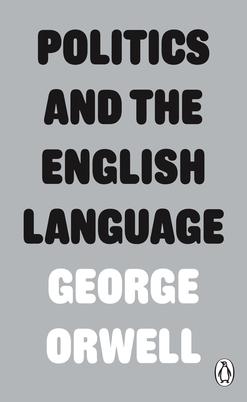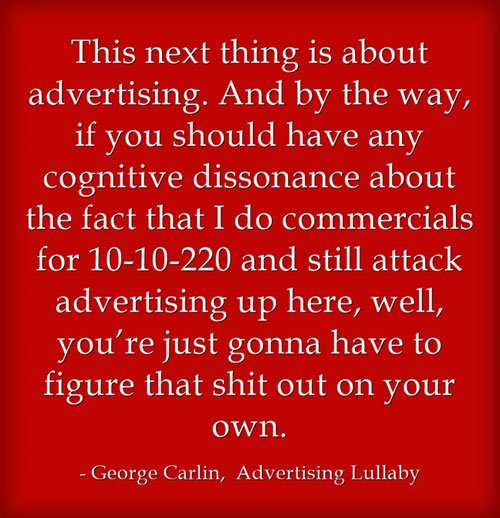Words VS Actions

"Look back through this essay, and for certain you will find that I have again and again committed the very faults I am protesting against." - George Orwell
Hypocrisy
There is often a great discrepancy between what people say and what people do. This discrepancy is often succinctly termed "hypocrisy," and justly so. But this discrepancy would not merit the epithet if it were not a discrepancy of the negative rather than of the positive sort: meaning, that it's people's actions that tend to be worse than their professed morals, rather than the other way around. If actions speak louder than words, then it is very clear what society is teaching us—it is very clear and it is very immoral. But what I am here interested in proposing is that, to the extent that this distinction between words and actions is genuine, different types of individual might develop different morals depending on whether they tend to learn from words or actions.

Made with Quozio.
Here's a link to Carlin's comedy routine.
Do as I say and not as I do
If it is true that words are nobler than actions, then individuals who tend to gravitate toward learning from words—that is, the more intellectual type of person—will tend to be more moral in comparison to individuals who tend to learn more easily by means of imitation (that is, imitation of actions). In order for this to work, we would probably have to posit some sort of predisposition, itself genetic or learned: some people are predisposed to pay attention to words more than actions (probably the same people who will end up using words more often and more ably than other people, so that would include poets, writers, philosophers, etc.), whereas other people take actions more seriously and do not pay as much attention to words (perhaps because they do not possess such a great facility with words as do their poet counterparts). If the predisposition is learned, it might well be the result of the way a child is raised. If a child is raised in an environment relatively empty of physical stimuli (like sports, fixing cars, and other such physical activities), it will perhaps learn to pay greater attention to words. Or if a child is closer to its mother, and if this mother tends to communicate primarily through words and feelings rather than through actions, the child will learn to assign primary importance to words. Not that it consciously assigns them such an importance, but it learns via any means available, and the only means available are words—and words tend to be nobler than actions. Parents seem to recognize all this when they urge their child to "Do as I say and not as I do," thereby at once:
- acknowledging two different types of learning (listening to what one says being one of the two and imitating what one does being the other),
- recognizing that words are nobler than actions (otherwise they would urge their children to do as they do and not as they say), and
- recognizing that actions usually have a stronger inducing effect than words (otherwise the solicitation would be unnecessary).

Word baby VS Action baby
Words/Action and Meaning
Now, in order to keep feelings of meaninglessness at bay, the morals drawn from words and actions must coincide. If they do not—if, to use the who-gets-the-girl trope, the type of man women say they want and the type of man women end up choosing are not one and the same—then someone’s worldview will come crashing down. Usually this type of meaninglessness affects the type of person who tends to rely more on words, who tends to learn more from words, who tends to trust words more. Because, ultimately, what matters is what happens: the action matters more than the word. If the action-type gets the girl, he will not be bothered so much if the girl’s words contradict her choices. But if the word-type does not get the girl, he will not be relieved by the fact that her words confirm his worldview, but instead will be very much troubled by this lack of correspondence between words and actions. Thus, the word-type is more often afflicted by bouts of melancholy: because lying with words is possible, lying with actions is not. This does wonders for his work (assuming he is a poet, for instance), but not so much for his mental and physical health. If one gets his values from words, then, these values will tend to disagree with reality more often, thus leading to melancholy or depression, whereas if one gets his values from actions, he will tend to lead a happier and more fulfilling life.
Curtain
This completes the 11th installment of the Meaning Of Life series. Like the 10th installment, I here offered some thoughts on how we get our values in the world. In case you missed the other episodes:
Part 10: Mothers and Egos!
Part 9: Can People Share Ownership of the Same Body?
Part 8: Against Subjectivism - Is Everything Relative?
Part 7: The Value-Laden View of Life
Part 6: I Am Therefore I Harm
Part 5: Nietzsche vs Christianity: Are Christians Nihilists?
Part 4: Can we desire death?
Part 3: Are nihilists being honest when they say life has no value?
Part 2: Does death make life meaningless?
Part 1: Is it possible to be a nihilist?
I'll see you in the next episode, where I will introduce my theory of Use, one of the three theories in the book that explain how life may appear meaningful or meaningless to us. We will, finally, be getting to the meat of the subject!

Come join us on Discord! https://discord.gg/7qyarFD
Reminds me of a comedy skit about philosophers "playing" football, or soccer if you are an American. They all stand around thinking about the game, thinking about the meaning of the game, thinking about the existence of the game, until one philosopher (Socrates, I think) exclaims, "I got it!" and kicks the ball into the goal.
Purpose of thought is action; I am assuming words mean thoughts? Action without thought is directionless, though words/thoughts without action is pointless. I think both need to be present; the cultivated man aligns his actions to carefully gathered thoughts. In the absence of the ideal, action matters more, but I contend that abnormal should not be setup as model for imitation.
Yup, from the Monty Python ensemble!
Agreed with your thoughts. I was quite literally referring to the possibility of two kinds of people, one who learns, rather naively, from books, stories, and words, one for example who grows up in a more affluent house, and doesn't learn the world through other people's actions, but through other people's words, for instance his private teachers, that all give him an idealized view of the world. Whereas the man-boy of action, who grows up having to farm the field, having to deal with real people every day, who has to navigate through their pretense, who learns early on that people say one thing and do another, will learn about the world through action, and thus be less idealistic, and less likely to be moral, since he'll try to fit into what the world is. It's just rather interesting, that this saying, "do as I say and not as I do", seems to reveal so much more about humans than what people have thought. For one, like I mentioned in the post, it seems to codify the idea that our words are always nobler than our actions. This presents to us a being whose "spirit is willing" but whose "flesh is weak". And there's so much more to be unpacked in that one saying.
Normally I would have something meaningful to add, or find something to challenge you one. But not this time. To the point and right on the mark.
I like it a lot. (But hey, those are just words right?)
Your upvote is the action part! :P
Congratulations! This post has been upvoted from the communal account, @minnowsupport, by Alexander Alexis from the Minnow Support Project. It's a witness project run by aggroed, ausbitbank, teamsteem, theprophet0, someguy123, neoxian, followbtcnews/crimsonclad, and netuoso. The goal is to help Steemit grow by supporting Minnows and creating a social network. Please find us in the Peace, Abundance, and Liberty Network (PALnet) Discord Channel. It's a completely public and open space to all members of the Steemit community who voluntarily choose to be there.
Congratulations @alexander.alexis! You have completed some achievement on Steemit and have been rewarded with new badge(s) :
Click on any badge to view your own Board of Honor on SteemitBoard.
For more information about SteemitBoard, click here
If you no longer want to receive notifications, reply to this comment with the word
STOP